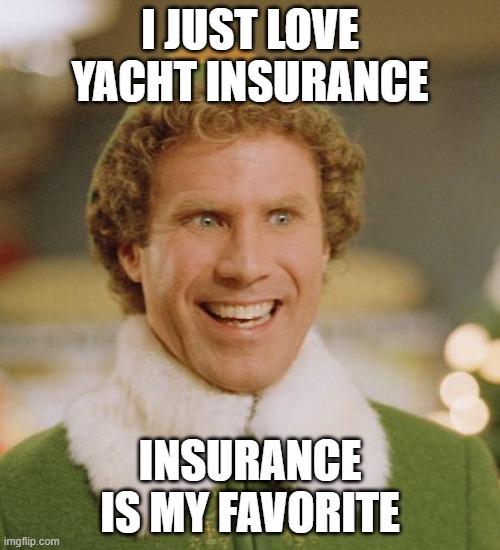
Yesterday we went over to the Chat n Chill for the Sunday pig roast, swam, and cleaned the bottom. There is a mini-reef next to the boat here at Sand Dollar Beach with all sorts of sea life in it: fish, rays, and a young sea turtle that wedged itself under a rock to rest. I have been wanting to document why we are back in the Bahamas vs. other destinations. One of the primary reasons is yacht insurance, so let’s jump in.
When I bring up yacht insurance, I am not referring to coastal policies were a boat primarily stays at a marina or yard. I am talking about boats that move around and cross oceans, usually without a home base. Insurance became a problem for blue water cruisers a few years ago after thousands of claims were processed for hurricane damaged yachts in a short period. The insurance companies determined they could not make any profit in these lines and left the market. We have had three insurers that have done just that, leaving us and many others in search of a new carrier every renewal year. We have never had a claim. We have had coverage through brokers or carriers directly, depending on the best deal. Carriers look at several things before endorsing coverage:
- Cruising plans (geographic area and month in each area)
- Previous claims history
- Crew experience
- Recent boat survey with no open exceptions (very important)
- Mast material – We have a carbon fiber mast. True story – we have a friend with a Farr 30 that damaged his carbon fiber mast during overland transport. The insurance company totaled the boat rather than pay a claim to replace the mast.
- Standing rigging age
- House battery type – The go to carrier for US flagged world cruisers is Markel. They have a policy called the Jackline program that is a perfect fit for us. The problem is they do not accept boats with lithium house batteries, no doubt because some do it yourself swap outs have gone bad. We are hearing they may soon accept Lithium Iron Phosphate installations completed by American Boat & Yacht Council (ABYC) certified technicians.
- Layup time (time in a yard)
This year our current carrier decided to leave the market and not endorse Caribbean sailing for existing policies. However, the Bahamas are an allowed sailing area until policy expiration in April 2022. I shopped other US carriers for full Caribbean coverage and saw close to an 80% premium increase. These US policies also had minimum crew requirements, high deductibles, maximum distance offshore, and other undesirable policy terms. I then started researching UK based insurance and found great coverage with very reasonable premiums. You can get UK insurance for a US flagged vessel when it is out of the US. The problem is you are not covered by the US legal system if you ever have a claim and it is denied, which is a concern.
So here is our plan:
- See how the carriers change their terms and premiums in the new calendar year since claims were most likely lighter than forecast
- Wait out Markel insurance on their decision to insure yachts with ABYC installed lithium batteries.
- If the two above do not materialize, revisit UK based policies
The bottom line is we figure it is worth waiting a few months in one tropical paradise to see if we can go to other tropical paradises at lower cost, better terms, and reduced risk.



2 comments
Happy Thanksgiving !! Hope you’re enjoying some conch fritters !
Happy Thanksgiving!
Comments are closed.